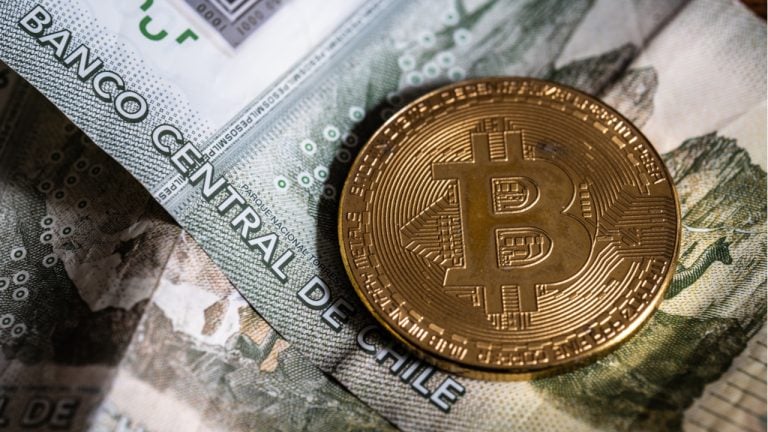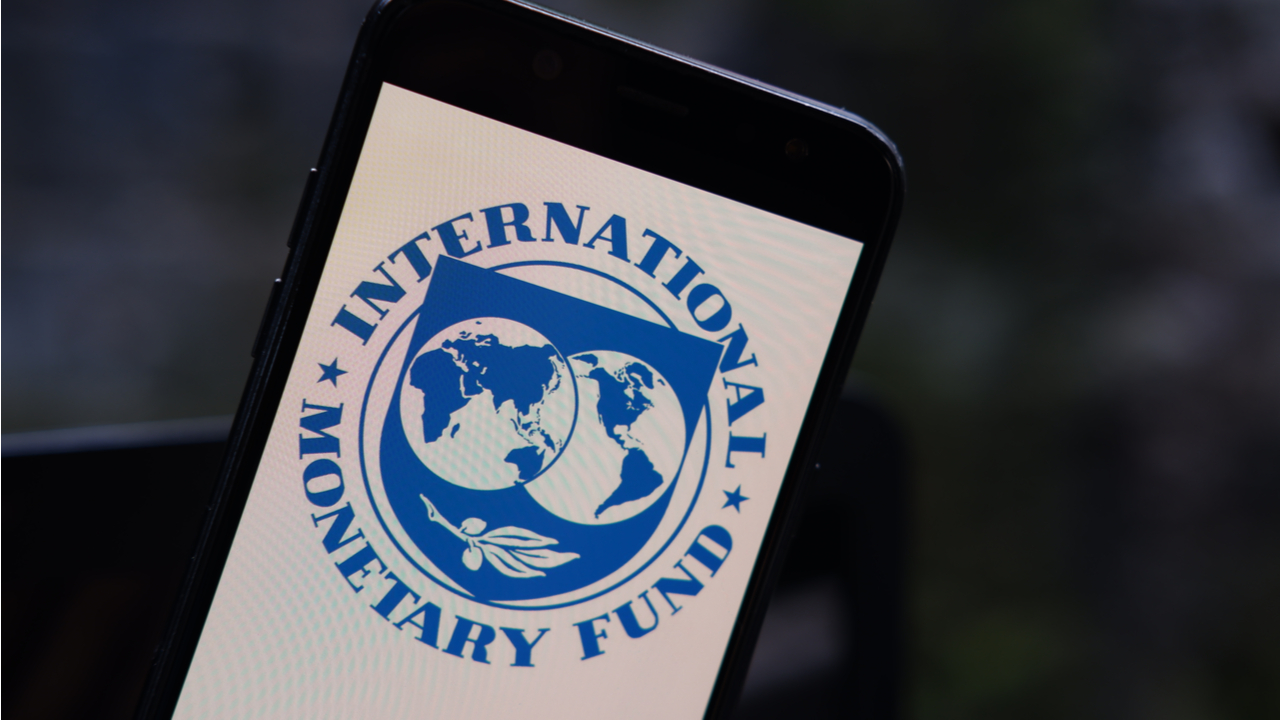 Cryptocurrencies rose in popularity in Chile, according to a survey from global consulting firm Bain & Company. The survey found that crypto is ranked as the third most popular investment asset among Chileans, only behind investment funds, which were the most popular investment option, and real estate, which ranked second. Popularity of Crypto Rises in […]
Cryptocurrencies rose in popularity in Chile, according to a survey from global consulting firm Bain & Company. The survey found that crypto is ranked as the third most popular investment asset among Chileans, only behind investment funds, which were the most popular investment option, and real estate, which ranked second. Popularity of Crypto Rises in […]
Inflation has fueled crypto growth in the region, stimulating asset tokenization and remittance infrastructure development.
Inflation, cross-border payments, assets tokenization and nonfungible tokens (NFTs) were among the major drivers for crypto adoption across Latin America in 2022, sources in the region told Cointelegraph, with exciting examples of progress across many countries.
Latin America made up 9.1% of the global crypto value received in 2022, reaching $562 billion between July 2021 and June 2022 — representing growth of 40% in the period. Four Latin American countries ranked among the top crypto adopters in the latest Chainalysis Global Adoption Index.
Major developments have contributed to these results over the past 12 months. Authorities have been working on central bank digital currencies (CBDCs), implementing standards for business operations, and clarifying regulations. Meanwhile, many companies in Latin America have been exploring ways to utilize blockchain technology and digital assets to solve the various challenges that countries in the region face.
"The region is ripe with opportunities for cryptocurrency adoption," noted a spokesperson for cryptocurrency exchange Bitso, which operates in Brazil and Argentina, among other countries in Central America, adding that:
"For both Argentina and Colombia, the impacts of inflation have driven many to use cryptocurrency. [...] For Colombia, remittances are another significant driver of adoption, even surpassing coal as a driver of dollar revenue in 2022 according to a Banco de Bogotá report."
Institutional adoption and regulatory developments have paved the way for Mercado Bitcoin to issue Brazil's first stablecoin, the MBRL, which is backed one-to-one by the Brazilian fiat currency through a partnership with Stellar. The country's central bank is scheduling for 2023 the test of its digital currency, and for 2024, its full release to over 200 million people. Also, a recently approved bill will regulate virtual assets providers after years of discussions in Congress.
"Brazil has been a major player in the crypto economy story in Latin America for several reasons: institutional adoption, regulatory advances, and general public buy-in. In that sense, public sector involvement is inevitable - this represents an extremely positive move, which enhances the crypto-active industry while providing greater security for investors," noted Fabrício Tota, director at Mercado Bitcoin.
Colombia also plans to introduce its digital currency, aiming to increase transparency and prevent tax evasion, which is estimated to account for nearly 8% of the country's gross domestic product. In Chile, the central bank has delayed plans for the issuance of the digital Chilean peso for deeper analysis of benefits and risks.
To fight inflation in Argentina, cities such as Buenos Aires and Mendonza started accepting cryptocurrencies for tax payments. At the same time, Santa Fe Province plans to implement crypto mining activities to raise funds for rail infrastructure upgrades. These may be timely initiatives given that Argentina's inflation rate is forecast to be 73.5% at the end of 2022, according to FocusEconomics panelists.
"Argentina is becoming a hub for bringing tech development and resources to Latin America from the rest of the world," said Ryan Dennis, senior manager at Stellar Development Foundation. "This naturally flows into blockchain development with a large number of startups in the country and thus a growing number of developers and founders working together in blockchain and crypto."
Latam's crypto space has also benefited from tokenization of investment products, allowing many to access products that were previously only available to large investors. "Tokenization of digital assets has been growing over the past years," including assets such as corporate bonds and real estate debts, noted Dennis.
Another reason contributing to the rise of tokenization of financial assets is the high-interest rates in the region. Most Latin American countries have double-digit interest rates, which prompts investors to seek assets with predictable returns and less volatility. This is an ideal scenario for financial companies working on tokenization and decentralized finance (DeFi) solutions.
Music and art tokenization are also trending in Latin America. "One revolution that has happened in LatAm is giving artists a window into the world of Web3," Dennis explained. "There are a lot of artists that have been able to get out of their local communities and country to become internationally renowned. That’s huge."
Crypto industry challenges in the region are similar to those seen worldwide: A lack of education about blockchain technology, insufficient regulation, and a deficit of trust. "The firms and projects that will lead the crypto in Latin America next year will be the companies thoughtfully addressing the need for increased transparency and trust," noted Bitso's spokesperson.
 The victory President-Elect Luis Inacio Lula Da Silva obtained on Oct. 30 over the incumbent Jair Bolsonaro in Brazil might open the gates for the proposal of a single currency for the countries of Latam. Lula announced this as part of his campaign, preaching the utility of a common currency as a way of fighting […]
The victory President-Elect Luis Inacio Lula Da Silva obtained on Oct. 30 over the incumbent Jair Bolsonaro in Brazil might open the gates for the proposal of a single currency for the countries of Latam. Lula announced this as part of his campaign, preaching the utility of a common currency as a way of fighting […] After years of court battles in Chile, a cryptocurrency exchange has managed to open a bank account in Bci, a financial institution that established a protocol to serve these businesses. The first exchange that opened a bank account with the institution was Buda, a local exchange, which satisfied the requirements of the bank in the […]
After years of court battles in Chile, a cryptocurrency exchange has managed to open a bank account in Bci, a financial institution that established a protocol to serve these businesses. The first exchange that opened a bank account with the institution was Buda, a local exchange, which satisfied the requirements of the bank in the […] A fintech bill, which seeks to regulate fintech and cryptocurrency-related activities in Chile, has been approved by the deputy chamber of the congress, leaving it ready to be sanctioned by the president of Chile, Gabriel Boric. According to individuals in the sector, the bill is directed to stimulate innovation and competition in an unregulated market. […]
A fintech bill, which seeks to regulate fintech and cryptocurrency-related activities in Chile, has been approved by the deputy chamber of the congress, leaving it ready to be sanctioned by the president of Chile, Gabriel Boric. According to individuals in the sector, the bill is directed to stimulate innovation and competition in an unregulated market. […] Following the Bank of England explaining that it would be meddling in U.K. bond markets and the Bank of Japan defending the yen in the foreign exchange market last week, the Hong Kong Monetary Authority (HKMA) revealed it intervened in forex markets on Wednesday. Hong Kong’s central bank detailed that it interfered in forex markets […]
Following the Bank of England explaining that it would be meddling in U.K. bond markets and the Bank of Japan defending the yen in the foreign exchange market last week, the Hong Kong Monetary Authority (HKMA) revealed it intervened in forex markets on Wednesday. Hong Kong’s central bank detailed that it interfered in forex markets […] Huobi Global, one of the biggest exchanges in volumes traded, has announced a partnership to make it easier for its Latam-based customers to acquire cryptocurrencies. The exchange has allied with Astropay, a payment services platform, to allow customers in Latam to purchase cryptocurrency with fiat currencies in several countries. Huobi to Make Crypto Easier to […]
Huobi Global, one of the biggest exchanges in volumes traded, has announced a partnership to make it easier for its Latam-based customers to acquire cryptocurrencies. The exchange has allied with Astropay, a payment services platform, to allow customers in Latam to purchase cryptocurrency with fiat currencies in several countries. Huobi to Make Crypto Easier to […] Moody’s, the asset quality rating agency, has warned the high rate of inflation that some countries are facing in Latam will affect the economic recovery in the region. Brazil, Chile, and Mexico are said to be the countries more affected by this phenomenon, and their recovery will depend on other factors to attenuate the effects […]
Moody’s, the asset quality rating agency, has warned the high rate of inflation that some countries are facing in Latam will affect the economic recovery in the region. Brazil, Chile, and Mexico are said to be the countries more affected by this phenomenon, and their recovery will depend on other factors to attenuate the effects […] The International Monetary Fund is predicting that Latin America (Latam) will keep growing this year, reaching a growth rate of 3% even with all of the difficulties that the region is facing. The institution believes that the economic recovery that Latam is enjoying after the Covid-19 pandemic will be decelerated by several factors, including the […]
The International Monetary Fund is predicting that Latin America (Latam) will keep growing this year, reaching a growth rate of 3% even with all of the difficulties that the region is facing. The institution believes that the economic recovery that Latam is enjoying after the Covid-19 pandemic will be decelerated by several factors, including the […] A new survey has found people’s opinion of the metaverse in emerging countries is significantly more positive than in their developed counterparts. The study, carried out by Ipsos for the World Economic Forum (WEF), also shows that Latam countries are among the most enthusiastic about the future of the metaverse and its applications for different […]
A new survey has found people’s opinion of the metaverse in emerging countries is significantly more positive than in their developed counterparts. The study, carried out by Ipsos for the World Economic Forum (WEF), also shows that Latam countries are among the most enthusiastic about the future of the metaverse and its applications for different […]